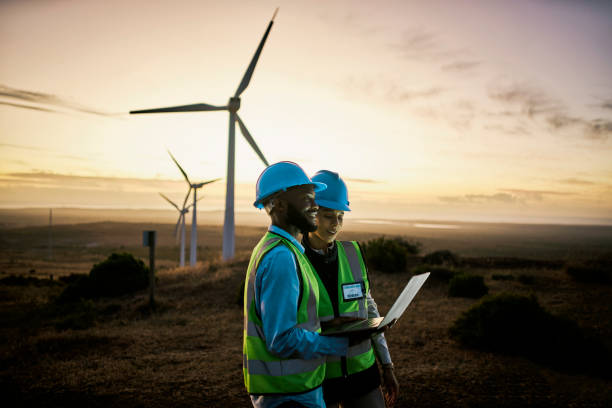The African continent has been a focal point in discussions about renewable energy, yet it remains one of the least exploited regions globally. This article explores various facets of renewable energy production in Africa, shedding light on its potential and examining reports and studies such as the “Renewable Energy Market Analysis: Africa and its Regions.”
Renewable energy production in Africa
Several key studies have extensively covered the renewable energy landscape in Africa, providing valuable insights for policymakers, researchers, and investors. One pivotal study by the International Renewable Energy Agency (IRENA), in collaboration with the African Development Bank (AfDB), stresses the urgency of transitioning to renewable energy to secure Africa’s sustainable future.
This study highlights the untapped wind, solar, hydro, and geothermal energy potential of the continent. It also provides a roadmap for public and private sector investments to grow this crucial sector.
Other studies, such as those from the World Bank and local governmental agencies, further support these findings by detailing specific case studies, challenges, and possible solutions for energy development across various African nations.
The continent’s renewable energy potential
Africa is exceptionally rich in renewable energy resources. Despite having abundant sun, wind, and water resources, the continent accounts for just 2% of global investments in renewable energy. With significant regional disparities, there is a wide gap between the renewable energy potential and the current state of development.
Geothermal energy is abundant in East African Rift regions, while North Africa has excellent solar potential. A large part of Central Africa, including countries like Congo and Zambia, holds enormous hydroelectric potential.
Renewable energy in Africa 2023
The Accelerated Partnership for Renewables in Africa (APRA) was launched to boost renewable energy on the continent. Founded by IRENA, in collaboration with countries like Kenya, Denmark, Germany, and the United Arab Emirates, APRA aims to accelerate renewable energy development and green industry across Africa.
At the launch in September 2023, Kenyan President William Ruto pledged 100% renewable power in Kenya by 2030 and emphasised that African nations need to work in unity to turn their renewable energy ambitions into reality. This initiative is a testament to the growing commitment among African countries to transition to cleaner, more sustainable energy systems.
The future of renewable energy
Kenya, along with APRA partners like Ethiopia, Namibia, Rwanda, Sierra Leone, and Zimbabwe, is focusing on three crucial areas: mobilising finance, providing technical assistance, and capacity building, as well as engaging the private sector. With the UN Climate Change Conference COP28 set to occur later this year, this partnership is poised to make a significant impact in supporting African countries in achieving their climate goals.
Beyond 2023, Africa’s renewable energy sector holds great promise. The transition to renewable energy could lead to a 6.4% increase in GDP by 2050 and create more jobs, offsetting those lost in traditional energy sectors. To unlock this future, however, comprehensive policy packages, international cooperation, and significant investments are crucial.
READ ALSO: Understanding the rollercoaster of electricity prices in Europe
Renewable Energy Market Analysis in Africa
The IRENA report, developed in collaboration with the African Development Bank, is a crucial document that outlines the opportunities and challenges in Africa’s renewable energy sector. It argues for the need to build modern, resilient, and sustainable energy systems to avoid the risk of stranded assets and limited economic prospects.
The renewable energy landscape in Africa is ripe for transformation. Countries like South Africa, Kenya, and Zambia are leading the way, and the overall potential for wind, solar, hydro, and geothermal energy is vast.
For the benefits to materialise, strategic investments, robust policies, and regional coordination are essential. As we move towards 2023 and beyond, renewable energy in Africa could very well be the game-changer the continent needs for sustainable economic development.

Leave a Reply